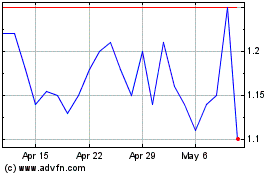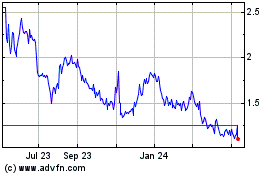Pfizer-Protalix Deal Strengthens Competition For Genzyme
December 01 2009 - 12:10PM
Dow Jones News
Pfizer Inc. (PFE) agreed to pay at least $60 million for rights
to Protalix Biotherapeutics Inc.'s (PLX) experimental drug for a
rare genetic disease, setting the stage for potentially more
formidable competition for Genzyme Corp.'s (GENZ) best-selling
drug.
Pfizer said Tuesday it signed an agreement with Protalix to
develop and commercialize taliglucerase alfa, now in development
for the treatment of Gaucher's disease, an inherited metabolic
disorder. In October, Protalix reported positive results from a
late-stage trial of the drug, and is preparing to apply for U.S.
Food and Drug Administration approval.
The profile of Protalix's drug has gotten a boost from problems
at Genzyme, of Cambridge, Mass., whose Cerezyme is the dominant
treatment for Gaucher's and brought in more than $1.2 billion in
revenue last year.
In June, Genzyme was forced to interrupt production of Cerezyme
and another drug, Fabrazyme, to sanitize a Massachusetts production
plant after finding a virus in it. Additional problems with Genzyme
products have emerged since then, and Genzyme shares have plunged
about 30% since February.
Under a special arrangement approved by the FDA, some Gaucher's
patients have been permitted to take the Protalix drug because of
the Genzyme shortage, and analysts were expecting the Protalix drug
to pose a competitive threat to Genzyme even before the Pfizer deal
was announced.
Genzyme said separately Tuesday it has begun shipping vials of
newly produced Cerezyme from its Massachusetts plant. Initial
shipments are intended for the most vulnerable patients, and
expanded shipments are expected by the end of the year.
Genzyme shares were recently up 69 cents, or 1.4%, to
$51.39.
Nevertheless, by linking up with the largest drug company in the
world, Protalix appears to be bolstering its potential competitive
position.
"The improved access to global pharmaceutical markets through
Pfizer elevates the [taliglucerase alfa] threat to Cerezyme and
implies potential downside to Cerezyme" sales estimates, J.P.
Morgan analyst Geoffrey Meacham wrote in a research note
Tuesday.
But Leerink Swann analyst Joshua Schimmer, who follows Genzyme,
said the Pfizer-Protalix deal was widely expected and shouldn't
change assumptions about the Protalix drug's potential to take
market share away from Cerezyme. Schimmer said Genzyme had more
pressing problems, including Tuesday's disclosure that the
resolution of production problems for Fabrazyme appears behind
schedule.
New York-based Pfizer will receive exclusive worldwide licensing
rights for the commercialization of taliglucerase alfa, while
Protalix will retain rights in its home country of Israel. In
addition to the $60 million up-front payment, Pfizer could pay up
to $55 million in additional regulatory milestone payments to
Protalix. Pfizer and Protalix will share revenue and expenses for
the drug on a 60%/40% basis, respectively.
Protalix shares dropped 96 cents, or 9.7%, to $8.90, possibly on
investor disappointment that the company didn't leverage its
Gaucher's drug for a takeover, or that the terms of the Pfizer deal
weren't more generous.
For Pfizer, the Protalix deal represents a continued push into
biologics, or drugs derived from living cells, as opposed to
traditional chemicals. Biologics can command higher prices and are
less vulnerable to generic competition.
The Protalix drug is a so-called enzyme-replacement therapy
derived from a proprietary plant cell-based expression platform,
using genetically engineered carrot cells. Cerezyme is made by a
different process, using mammalian cells.
Pfizer shares rose 49 cents, or 2.7%, to $18.66.
-By Peter Loftus, Dow Jones Newswires; 215-656-8289;
peter.loftus@dowjones.com
Protalix BioTherapeutics (AMEX:PLX)
Historical Stock Chart
From Mar 2024 to Apr 2024

Protalix BioTherapeutics (AMEX:PLX)
Historical Stock Chart
From Apr 2023 to Apr 2024
